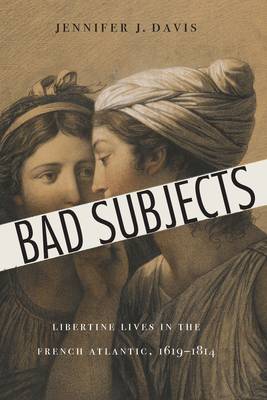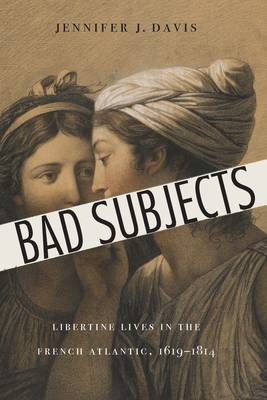
En raison d'une grêve chez bpost, votre commande pourrait être retardée. Vous avez besoin d’un livre rapidement ? Nos magasins vous accueillent à bras ouverts !
- Retrait gratuit dans votre magasin Club
- 7.000.000 titres dans notre catalogue
- Payer en toute sécurité
- Toujours un magasin près de chez vous
En raison de la grêve chez bpost, votre commande pourrait être retardée. Vous avez besoin d’un livre rapidement ? Nos magasins vous accueillent à bras ouverts !
- Retrait gratuit dans votre magasin Club
- 7.000.0000 titres dans notre catalogue
- Payer en toute sécurité
- Toujours un magasin près de chez vous
110,45 €
+ 220 points
Description
In a lively account that spans continents, Jennifer J. Davis considers what it meant to be called a libertine in early modern France and its colonies. Libertinage was a polysemous term in early modern Europe and the Atlantic World, generally translated as "debauchery" or "licentiousness" in English. Davis assesses the changing fortunes of the quasi-criminal category of libertinage in the French Atlantic, based on hundreds of cases drawn from the police and judicial archives of seventeenth- and eighteenth-century France and its Atlantic colonies alongside the literature inspired by those proceedings. The libertine life was not merely a subject for fiction nor a topos against which to play out potential revolutions. It was a charge authorities imposed on a startlingly wide array of behaviors, including gambling, selling alcohol to Native Americans, and secret marriages. Once invoked by family and state authorities, the charge proved nearly impossible for the accused to contest, for a libertine need not have committed any crimes to be perceived as disregarding authority and thereby threatening families and social institutions. The research in Bad Subjects provides a framework for analysis of libertinage as a set of anti-authoritarian practices and discourses that circulated among the peoples of France and the Atlantic World, ultimately providing a compelling blueprint for alternative social and economic order in the Revolutionary period.
Spécifications
Parties prenantes
- Auteur(s) :
- Editeur:
Contenu
- Nombre de pages :
- 370
- Langue:
- Anglais
- Collection :
Caractéristiques
- EAN:
- 9781496207890
- Date de parution :
- 01-07-23
- Format:
- Livre relié
- Format numérique:
- Genaaid
- Dimensions :
- 152 mm x 229 mm
- Poids :
- 712 g

Les avis
Nous publions uniquement les avis qui respectent les conditions requises. Consultez nos conditions pour les avis.






